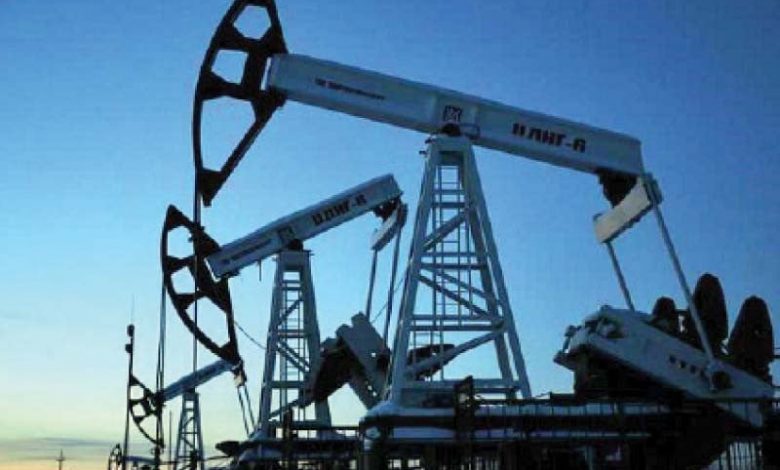E&P firms seek Rs75b tariff subsidy

ISLAMABAD:
Petroleum exploration and production (E&P) companies have informed the federal government that the payables of gas utilities to foreign firms have mounted to $600 million and called for allocating a tariff differential subsidy of Rs75 billion to avert collapse of Pakistan’s upstream petroleum sector.
In a letter written to the minister of petroleum, Pakistan Petroleum Exploration and Production Companies Association (PPEPCA) claimed that preference was being given to liquefied natural gas (LNG) imports instead of ramping up efforts for gas exploration in the country.
It argued that delayed payments were becoming a significant barrier to the ability of upstream companies to pump investment into their assets. “This issue has resulted in a reduction of 300 mmcfd (million cubic feet per day) of gas due to low drilling activities.”
The association called for taking different measures to stave off the collapse of Pakistan’s upstream petroleum sector. It sought a budgetary grant or tariff differential subsidy of at least Rs75 billion for Sui Southern Gas Company (SSGC) and Sui Northern Gas Pipelines Limited (SNGPL) for partially bridging the accumulated revenue shortfall.
The subsidy will facilitate them in paying the upstream companies, which will, in turn, be able to meet their operating expenditures and carry out planned exploration and development work for sustaining and enhancing oil and gas production in the country. It asked the government to give directives to the State Bank of Pakistan (SBP) for allocating foreign exchange for payments to foreign E&P companies in an equitable manner.
It also underscored the need for initiating work on underground gas storage facilities to avoid the curtailment of indigenous gas supplies.
In the letter, the association of E&P companies drew attention towards a critical situation unfolding in the upstream oil and gas sector.
“Our industry is confronting a complex array of challenges that require urgent action. Foremost among these is the alarming amount of outstanding receivables, which currently stand at a staggering Rs1,500 billion, of which over $600 million is payable to foreign companies.” It pointed out that companies were witnessing a marked decline in domestic oil and gas production, with the shortfall being balanced by costly energy imports, especially LNG, resulting in growing energy shortages.
The issue of mounting receivables was not only affecting the financial health of companies within the industry but was also jeopardising the broader energy security and foreign investment in Pakistan, the association cautioned.
It is undermining the confidence of investors and creditors, hindering the necessary capital flow and technology for exploration and developmental activities.
This is evidenced from the fact that no new international upstream company, according to PPEPCA, has invested in any block or opportunity on offer over the past few years, while a number of international E&P companies have exited the country.
“Our sector currently produces 3,200 mmcfd of natural gas along with 70,000 barrels per day of indigenous oil. This output represents 35% of the country’s primary energy supply, highlighting the sector’s crucial role in meeting energy needs,” it said, adding that such a vital sector had been crippled by default on the part of government-backed gas utilities.
It warned that the severe cash flow crisis was pushing companies to drastically cut exploration and development activities.
Till February 2024, out of the planned exploration of 23 wells during the year, only nine were drilled. At present, only 19 out of the available 42 rigs are operational in the country and there is a substantial reduction in seismic activities.
Even development wells are being put on hold as companies are reluctant to bring additional gas volumes to the market. This loss of activity has curtailed around 300 mmcfd of gas production.
In addition, the preference for imported LNG over domestic gas is causing the choking of production at mature wells and fields, some of which may not be revived.
“This has fostered a situation where investment to find new oil and gas fields and maintain production at existing fields is drying up. As a result, the gas production is rapidly declining and replacing it with expensive LNG will have significant ramifications for our economy and the political landscape,” the association said in the letter.
It claimed that payment default was consistently growing, despite the increase in consumer gas prices twice in the last fiscal year, effective from November 1, 2023 and February 1, 2024.
This situation calls for the government to immediately provide funds to the gas utilities to improve their liquidity position. Also, it must be noted that payments to foreign oil and gas companies are backed by sovereign guarantees and any non-payment can be considered a sovereign default.
In order to manage the crisis, the association requested the government to take necessary steps without further delay. Otherwise, its member companies may be forced to reduce or suspend production, leading to a massive shortage of gas.
Published in The Express Tribune, April 20th, 2024.
Like Business on Facebook, follow @TribuneBiz on Twitter to stay informed and join in the conversation.




